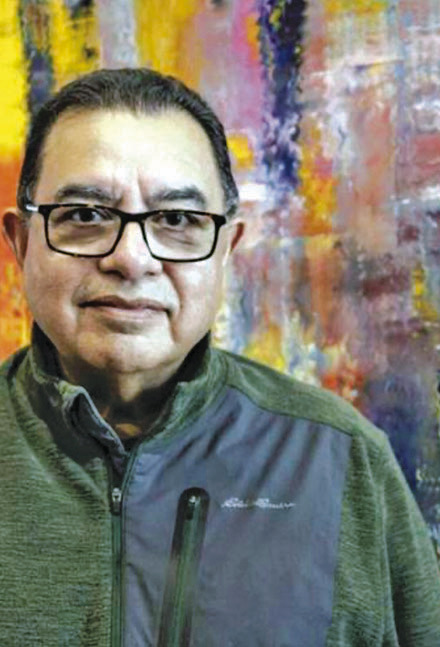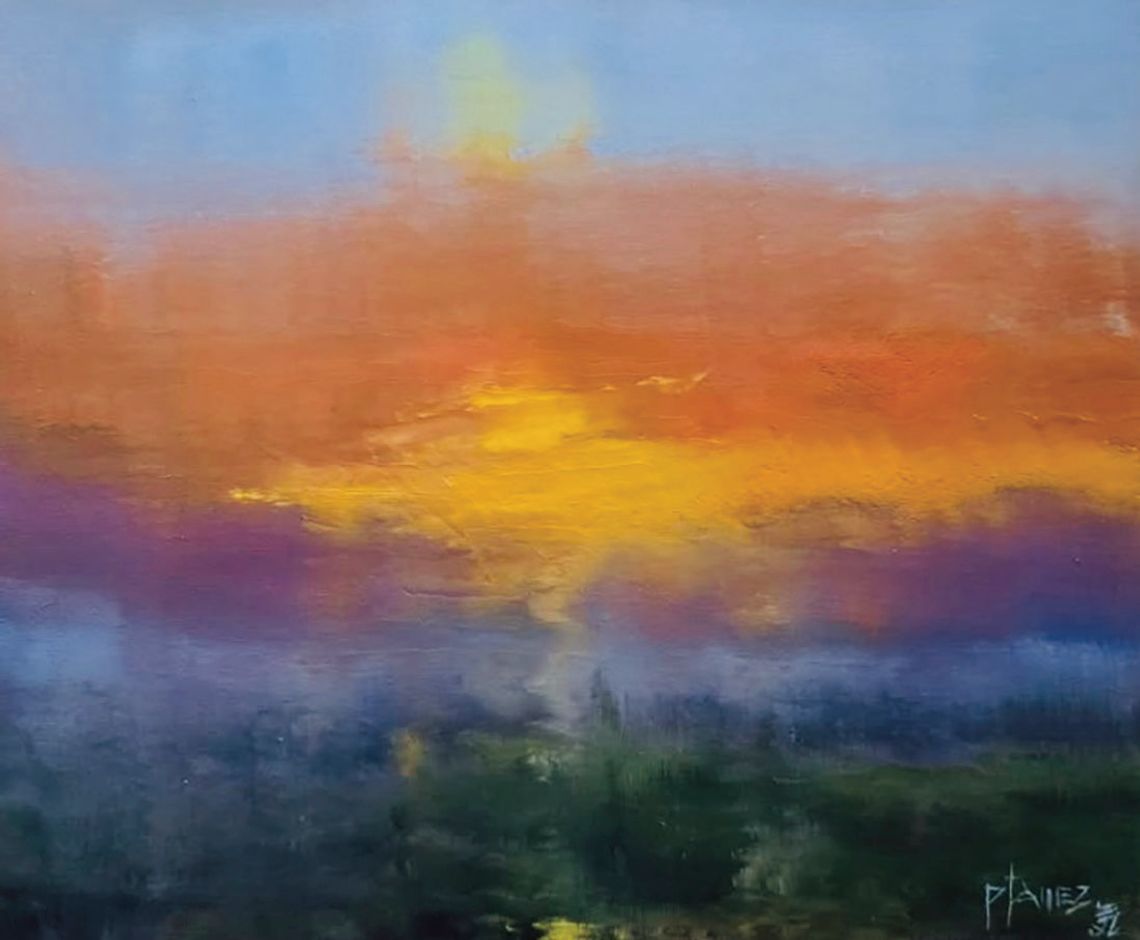CELEBRATING THE ARTS G
PAULA HORNER
HCCA PRESIDENT
The first generation of Abstract Expressionism thrived between 1943 and into the mid-1950s.
The movement advantageously transferred the art world’s focus from Paris to New York City in the years following World War II. The paintings were, for the most part, viewed widely in art publications and in traveling exhibitions. In the path of Abstract Expressionism, new generations of artists, both American and European, were extremely affected by the breakthroughs made by the first generation and went on to create their own important expressions influenced by, but not imitative of, those who forged the way forward.
Artists such as Jackson Pollock, Willem de Koonig, Mark Rothko, Norman Lewis, Franz Kline, Clyfford Still and a couple dozen others were key figures in changing the face of fine art.
The term “abstract expressionism” was first applied in 1946 by art critic Robert Coates. This new form of art was created through spontaneity of strokes and color and expression of the subconscious. Art critic Harold Rosenberg first used the term “action painting” to explain the working method of Abstract Expressionism. He wrote, “The canvas began to appear ... as an arena in which to act ... what was to go on the canvas was not a picture but an event.”
According to methodology, the painter improvises an image as he goes along with the resulting image recording a moment in the artist’s life. Giving free rein to impulse and chance, the impassioned act of painting became an absolute value in itself.
Join HCCArts resident artist Pauly Tamez on Feb. 8 for a mini workshop at The Classroom at The Agri-Cultural Museum and Arts Center, Boerne, as he walks you through the steps to create your very own masterpiece. Register today at www.hccarts.org. Class size is limited, and supplies are included.
Hill Country Council For the Arts Calendar
— Saturday Mini Workshops are held in The Classroom at The Agri-Cultural Museum and Arts Center, 102 City Park Road, Boerne.
Up first, a new offering: Intro to Carving Techniques, with Matthew Teter, 10 a.m. to 1 p.m. on Feb. 22. The class will focus on the basic elements of woodcarving skills. This first involves understanding and using the tools correctly, efficiently and with safety always in mind. The proper usage of knife skills and other tools will be demonstrated.
Techniques and movements will be explained when using the knife to achieve various carving patterns. Students will be provided a wooden dowel to create a “carving stick” that demonstrates carving techniques and patterns.
All supplies are included with the class fee, $75 for HCCA members, $85 for others. Class size limited. For details, call Paula at 210-269-8349, or register at: www.hccarts.org.
— Tuesday 'Art After-Hours' features several different creative aspects to enjoy. Enjoy an evening of camaraderie and creativity. All sessions are held 7-9 p.m. on Tuesdays at The Classroom at The Agri-Cultural Museum and Arts Center.
Supplies included; class size limited.
Jan. 28: Block Printing. Spend your evening immersed in relief printing. Carve a negative design into a printing plate, apply ink and pull a positive image from the carved surface.
The class focuses on simple graphic images, applying printmaking ink and traditional use of a printing press. Follow our easy design principles and process for guaranteed beginner success.
Feb. 4: Metal Stamping. Create individual designs in metal with the art of imprinting metal blanks with designs and letters.
Use decorative metal stamps, punches, findings and beads. Concepts include metal forging, metal jewelry smithing and finishing techniques. Make a pendant or earrings with your own unique style.
Send 'Art AfterHours' inquiries to [email protected] or register today at: www.hccarts.org. Call Paula, 210-269-8349, with inquiries. Discounts with HCCArts membership.
Follow the Hill Country Council for the Arts on Facebook and Instagram and visit our website often: www.hccarts.org.
Send inquiries to president@ hccarts.org. HCCArts develops and enriches an environment that supports and promotes awareness, appreciation, education and access to all the arts.









Comment
Comments